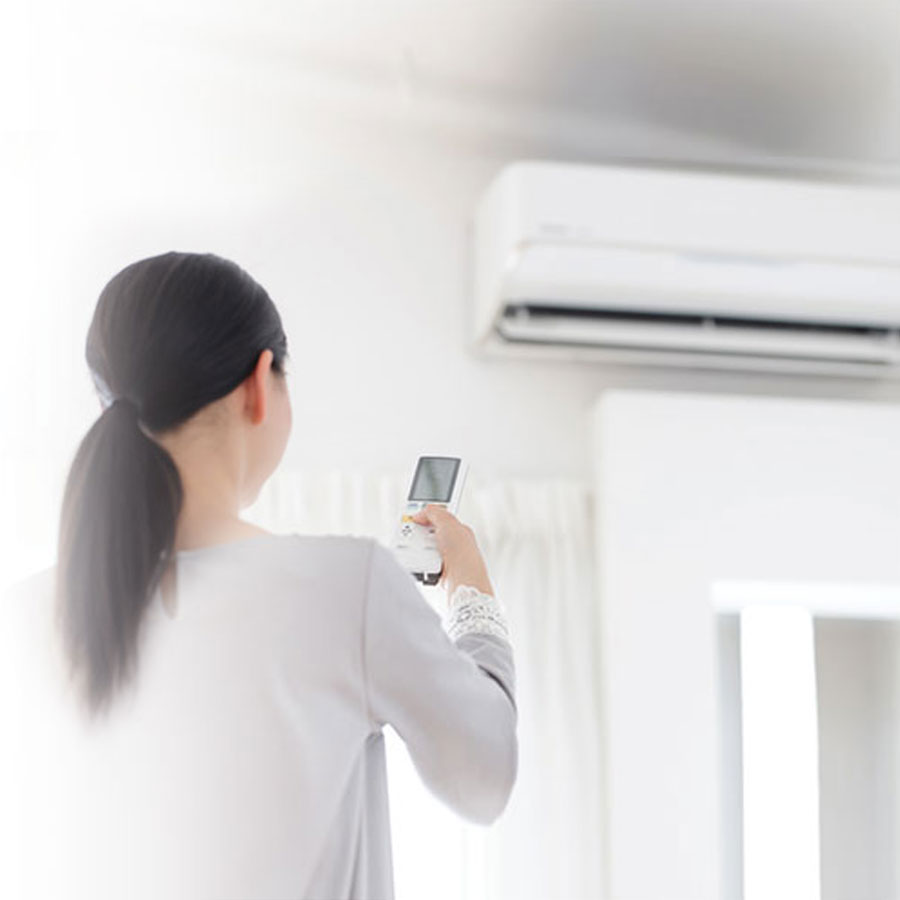Air-conditioning ensures our comfort and is an integral part of our current way of life. Yet, what are its effects on health?
Air-conditioning: good or bad?
It is recognized that air-conditioning probably provides more advantages than inconveniences for people. This is why it is so popular, especially during summer. Who hasn't frantically searched for the instant cool refreshing sensation provided by air-conditioning?
Whether air-conditioning is beneficial or harmful depends on a number of factors, such as:
- age and health of the exposed individuals
- conditions of use of the air-conditioning system, including the cooling degree, and
- quality and maintenance of the cooling system
Air-conditioning: a blessing during a heat wave
Air-conditioning can be beneficial, especially during a heat wave. It promotes sleep quality and comfort, particularly for people who are bothered by heat (i.e. pregnant women or women who have hot flashes during menopause). Additionally, it can reduce the risks of:
- heat exhaustion and dehydration, especially for vulnerable people (babies, elderly or malnourished persons, etc.)
- cardiovascular problems in predisposed persons, and
- symptoms associated to respiratory diseases such as chronic obstructive pulmonary disease (COPD)
Despite its many virtues, air-conditioning can have certain harmful effects on health.
Allergies
The use of air-conditioning is usually recommended for seasonal allergy sufferers, as it limits exposure to pollen present in the air outside. Pollen is responsible for seasonal allergy symptoms. However, cooling systems, especially if they are poorly maintained, can contain a high concentration of dust and pollen, thus promoting contact with allergens causing symptoms to worsen.
Moreover, for certain people suffering from allergic rhinitis or other respiratory problems, it is mould (microscopic fungus) that causes unpleasant symptoms. Mould releases spores in the air that are then inhaled by people who are hypersensitive to them, namely children, the elderly, and people who have health issues (weakened immune system, asthma, severe allergies, other respiratory diseases, etc.).
Infections
It is possible for an air-conditioner to house germs, including viruses, bacteria, and fungus (or mould). This can promote respiratory infections that are more or less serious, ranging from a simple cold to legionellosis, for example.
Legionellosis is a rare, but serious lung infection that is potentially deadly. The Legionella bacteria, which is responsible for the infection, sometimes takes up residence in air-conditioning systems. This can be explained by the fact that it spreads more easily in the presence of warm and stagnant water. Some air-conditioning systems use circuits cooled with water. Bacteria multiply and are then released into the air. Legionellosis is contracted by breathing in droplets of contaminated water.
Respiratory diseases
People with asthma may see their health affected after exposure to air-conditioning. The cold is one of the factors that trigger typical asthma symptoms such as coughing, wheezing, and shortness of breath. Additionally, prolonged exposure to air-conditioning can contribute to worsening asthma and to the development of lung infections resulting from this condition.
Therefore, depending on the context, air-conditioning could be beneficial or harmful to respiratory disease sufferers.
Other effects
Air-conditioning that is set at too high an intensity can lead to or worsen other symptoms and health issues. Here are some examples:
- dry and irritated eyes, mouth, throat or nasal passages
- headaches
- sore throat
- laryngitis
- Raynaud's disease
- arthritis
Some advice
- Use air-conditioning with moderation.
- Avoid significant differences between indoor and outdoor temperatures. A maximum range of 8°C is advisable.
- Ensure that all cooling systems are well maintained to reduce the risk of microbial contamination.
- Check for any stagnant water in the cooling system. If your system uses water, ensure that it is changed regularly.
- Read the air-conditioning user's manual and follow the instructions.
- Regularly replace or clean filters.
- When possible, choose a cooling system equipped with an air purification system.
Air-conditioning has a number of benefits from a health and well-being perspective, but it is not without risks. It's best to be well informed in order to make wise and safe use of it.
Don't hesitate to consult your pharmacist for additional information or advice about the measures to take to stay healthy during the summer.

